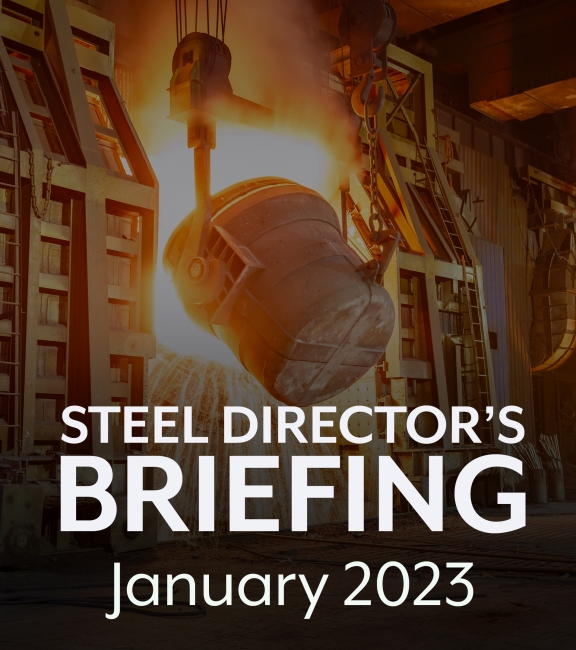Is another wave of pent-up demand about to hit the steel market?
Is another wave of pent-up demand about to hit the steel market?

After a slow start to January, worldwide mill offer prices rose significantly in just a few weeks. Lead times from European mills extend into April and beyond, with order books for this quarter now full.
The short-term availability of stock is therefore limited if you require material quickly. This situation is exacerbated by the fact that lead times from Asian mills extend into May at the earliest.
At the time of writing, Tata remain off the market for new orders. They clearly expect prices to continue rising and will only open talks for quarter 2 when they believe it is in their best interests to do so. It will be very interesting to see what they come back to the market with.
On the whole, many end users appear unconvinced about the sustainability of price increases. Some remain cautious about placing orders in the hope that prices will fall. However, this is a looking like a very risky strategy. Leave it too long and they may run out of time to secure the tonnes they need to satisfy their production requirements.
The price increases experienced in Europe need to be viewed in the context of global steel supply. The world waits to see how China emerges after the Lunar New Year holiday and the easing of zero covid restrictions in December.
Concerns were expressed in many quarters about the potential for another surge in covid cases after the new year celebrations. However, initial reports suggest that the current wave of covid infections is coming to an end. The BBC, for example, are reporting that ‘fever clinic visit rates have dropped by over 90% through January and hospitalisation rates are down over 85%.’
The “great re-opening” of China could therefore have a profound impact on the global economy and cause significant disruption to global supply chains. As the engine of the global steel industry, a surge in demand from China would create a considerable uplift in steel demand and therefore prices.
When you also factor in the war in Ukraine and the ongoing impact of soaring energy costs, it becomes increasingly difficult to make the case against further price increases, at least in the short term.
In December, I discussed concerns about a persistent cycle of price volatility. The start of the year suggests these fears should be taken seriously. Ultimately, supply chains are operating under strain and are likely to do so for the foreseeable future.
‘Green steel’ is surely one area of opportunity that requires greater focus. At Cooper and Jackson, we are definitely receiving an increased number of enquiries for environmentally friendly steel, from different sectors.
Several European mills have made strong progress with substantial investments in green steel production. Of concern is the fact that British manufacturers appear to be lagging behind in this area.
On the plus side, the UK government is expected to confirm a £600 million package of support, but, it is widely acknowledged that the decarbonisation of steel production in the UK will require billions of pounds worth of investment.
How and when will this investment be made? These are important questions that require urgent answers.
Whilst the impact on global steel supply would be limited, we could, at least, take pride in having a domestic supply of sustainable steel and be reassured that the UK is working hard to lead the production of ‘green steel’ globally.
A government with a clear, well-defined industrial strategy would be a welcome step in the right direction.
